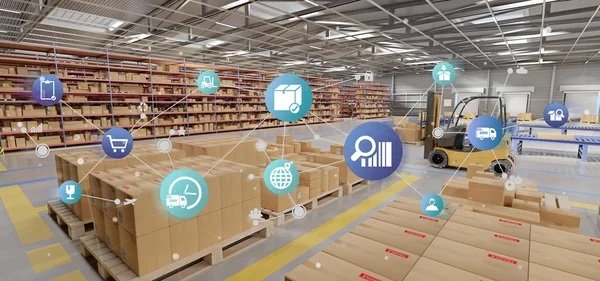🚚🌐 Discover how logistics services have evolved from basic transportation to tech-driven, eco-friendly solutions! From e-commerce innovations to global supply chain management, explore how logistics enhances efficiency and customer satisfaction. 📦✨
Logistics services have undergone a dramatic transformation over the past few decades, evolving from basic transportation functions to sophisticated, technology-driven solutions that are integral to global commerce. Historically, logistics was synonymous with transportation and warehousing. However, as global trade expanded and consumer expectations shifted, the scope of the best logistics services broadened to encompass a comprehensive range of activities designed to streamline the flow of goods from origin to destination. This evolution reflects the growing complexity of supply chains and the need for more efficient, agile, and responsive systems. Today, logistics services are critical to the success of businesses across various sectors, offering solutions that enhance operational efficiency and customer satisfaction.
At the heart of modern logistics services is the concept of integrated supply chain management. This approach emphasizes the coordination and optimization of various components of the supply chain, including transportation, warehousing, inventory management, and order fulfilment. By integrating these functions, logistics providers can offer a more seamless and efficient service, reducing lead times, minimizing costs, and improving overall supply chain visibility. The integration of technology, such as advanced analytics, artificial intelligence, and the Internet of Things (IoT), has further revolutionized logistics by enabling real-time tracking, predictive analytics, and automated processes. These technological advancements have empowered logistics providers to offer more accurate and reliable services, enhancing their ability to meet the dynamic needs of their clients.
The rise of e-commerce has been a major driver of change in the logistics industry. The rapid growth of online shopping has created new challenges and opportunities for logistics providers. E-commerce logistics requires specialized solutions to handle high volumes of small orders, manage complex returns processes, and ensure timely delivery to consumers. This has led to the development of innovative fulfilment models, such as same-day and next-day delivery services, as well as the use of distribution centres strategically located to optimize delivery times. Additionally, the increasing importance of customer experience in e-commerce has pushed logistics providers to focus on transparency, flexibility, and personalized services. The ability to offer real-time tracking and delivery updates has become a key differentiator in the competitive e-commerce landscape.
Sustainability has become a critical consideration in logistics services, driven by growing environmental concerns and regulatory pressures. Companies are increasingly recognizing the need to reduce their carbon footprint and implement eco-friendly practices throughout their supply chains. This has led to the adoption of green logistics strategies, such as optimizing transportation routes to reduce fuel consumption, investing in energy-efficient warehouses, and exploring alternative fuels and electric vehicles. Logistics providers are also working on initiatives to minimize waste and enhance recycling efforts, aligning with broader corporate sustainability goals. By integrating sustainability into their operations, logistics companies not only contribute to environmental protection but also improve their operational efficiency and appeal to environmentally conscious consumers.
The globalization of trade has further complicated the logistics landscape, necessitating more sophisticated solutions to manage cross-border supply chains. International logistics involves navigating complex regulatory environments, dealing with diverse customs requirements, and managing currency fluctuations. To address these challenges, logistics providers offer a range of services, including customs brokerage, freight forwarding, and global network management. These services help businesses effectively manage the intricacies of international trade, ensuring compliance with regulations and optimizing the flow of goods across borders. The rise of global trade agreements and the expansion of international markets have underscored the importance of reliable and efficient logistics services in supporting global commerce.
The growth of technology and data analytics has also transformed logistics services by providing valuable insights that drive decision-making and operational improvements. Advanced analytics enable logistics providers to analyze vast amounts of data related to supply chain performance, customer preferences, and market trends. This information is used to identify patterns, forecast demand, and optimize inventory management. Predictive analytics, for example, helps logistics companies anticipate potential disruptions and take proactive measures to mitigate risks. The ability to leverage data for strategic decision-making has become a crucial factor in enhancing supply chain resilience and competitiveness.
The integration of automation and robotics in logistics operations has also revolutionized the industry, increasing efficiency and accuracy while reducing labour costs. Automated systems, such as robotic warehouses and autonomous vehicles, are increasingly being used to handle repetitive tasks, manage inventory, and transport goods. These technologies not only improve operational efficiency but also enhance safety and accuracy in logistics processes. As automation continues to advance, logistics providers are exploring new ways to incorporate these technologies into their operations, driving innovation and setting new standards for efficiency and reliability.
Conclusion
In conclusion, logistics services have evolved significantly, adapting to the changing demands of global trade, technological advancements, and environmental considerations. From integrated supply chain management to sustainable practices and automation, the logistics industry continues to innovate and improve, offering solutions that drive efficiency, reduce costs, and enhance customer satisfaction. As businesses navigate an increasingly complex and dynamic environment, the role of logistics services remains pivotal in supporting their success and growth. The future of logistics promises even more advancements, with ongoing developments in technology, sustainability, and global trade shaping the next generation of logistics solutions.



